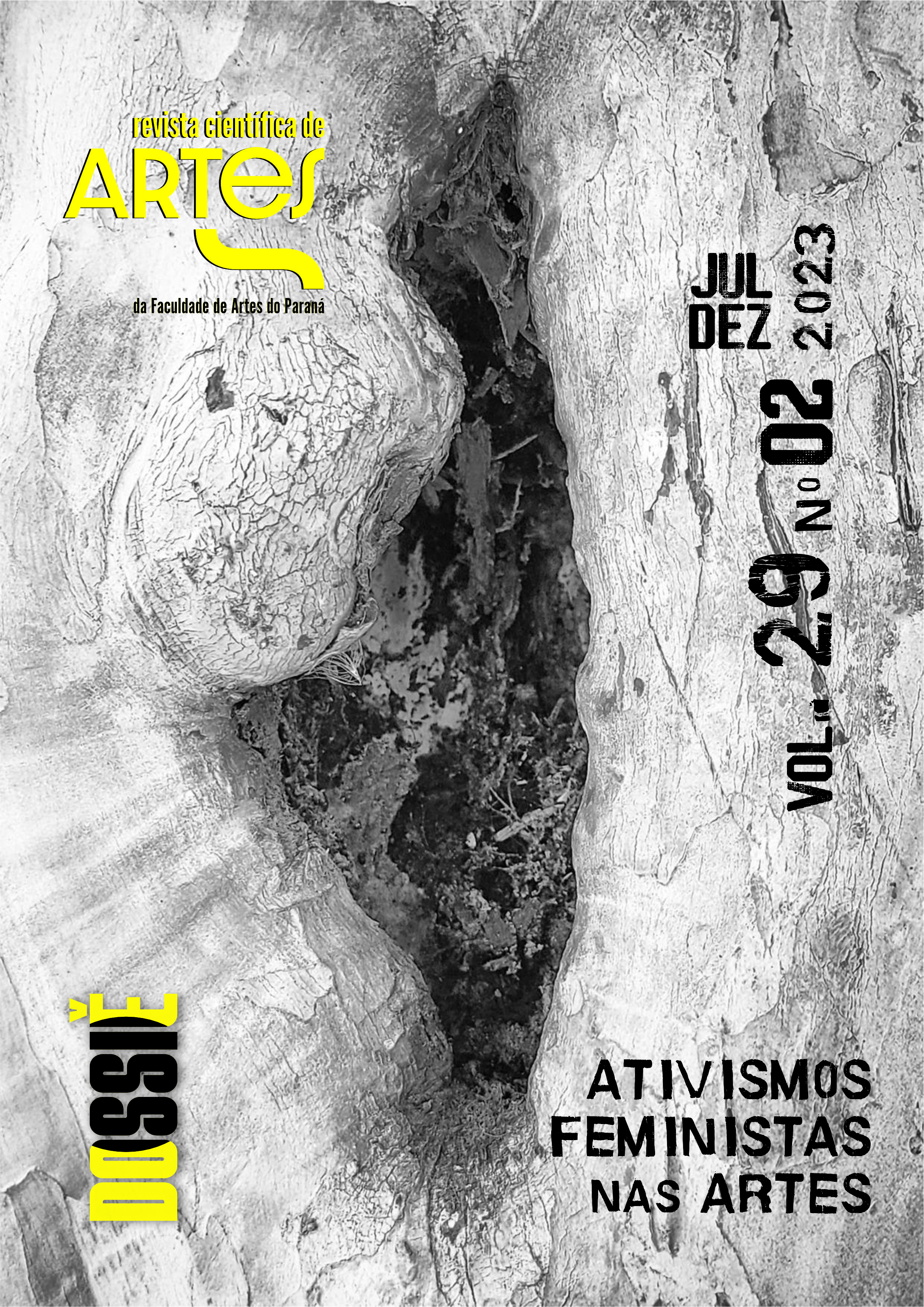Formação docente, currículo e políticas do conhecimento na UFSB
a Licenciatura Interdisciplinar em Artes e suas Tecnologias na percepção dos/das estudantes
DOI:
https://doi.org/10.33871/19805071.2023.29.2.7987Keywords:
Teaching, Curriculum, Teacher’s trainingAbstract
The article addresses part of the results of the research entitled “Analysis of training contexts of Arts teachers from public basic education in XXXX”, which had its work plan awarded with a quota of scientific initiation scholarship (UFXX). It starts with an approach on the fundamentals of art in education to think over teacher’s initial training in Arts focusing on the curricular experience of the Interdisciplinary Teaching Degree in Arts and its Technologies (LI-Artes), offered by the Institute of XXXX from the Federal University of XXX (UFXX), at the XXXX campus. This training path’s interdisciplinarity, as well as its inter-epistemic feature, aims at a possible counter-hegemonic proposition of a teaching practice in conversation with non-canonical knowledge in Arts. Thus, the perceptions of a group of enrolled students at LI-Artes on the Course’s Pedagogical Project (2018) as well as its gaps, overindulgences, challenges and perspectives on the preparation and performance of art-educators are analyzed. For such purpose, the concept of “politics of knowledge” is used to discuss the curricular matrix of future Arts teachers’ training, based on the experiences of the students from the referred course.
Downloads
References
APPLE, M. W. A política do conhecimento oficial: faz sentido a ideia de um currículo nacional? In: MOREIRA, Antonio Flavio; TADEU, Tomaz (org.). Currículo, cultura e sociedade. São Paulo: Cortez, 2013.
BARBOSA, A. M. Arte-educação no Brasil. São Paulo: Perspectiva, 2012.
BARBOSA, Ana Mae. A imagem no ensino de arte. São Paulo: Perspectiva, 2014.
BRASIL. Lei de Diretrizes e Bases da Educação Nacional. Lei nº 9.394/96. Brasília, 1996.
BRASIL. Ministério da Educação. Parecer do CNE/CES 15/2005 - Institui Diretrizes Curriculares Nacionais para a Formação de Professores da Educação Básica, em nível superior, curso de licenciatura, de graduação plena. Disponível em: http://portal.mec.gov.br/cne/arquivos/pdf/pces0015_05.pdf . Acesso em: 18 de novembro de 2023.
BRASIL. Ministério da Educação. Parecer CNE/CP nº 28/2001 - Estabelece a duração e a carga horária dos cursos de Formação de Professores da Educação Básica, em nível superior, curso de licenciatura, de graduação plena. Disponível em: http://portal.mec.gov.br/cne/arquivos/pdf/028.pdf . Acesso em: 18 de novembro de 2023.
BRASIL. Secretaria de Educação Fundamental. Parâmetros curriculares nacionais - Artes. Brasília, 1998.
DUARTE JÚNIOR, J.-F. Por que Arte-educação?. Campinas/SP: Papirus, 2002.
FAZENDA, I. C. A.; SOUZA, F. C. Diálogos Interdisciplinares em Saúde e Educação: a Artes do cuidar. Porto Alegre/RS, Educação & Realidade, v. 37, n. 1, p. 107-124, Jan./Abr. 2012.
GIROUX, Henry A.; MCLAREN, Peter. Formação do professor como uma contraesfera pública: a pedagogia radical como uma forma de política cultural. In: MOREIRA, Antonio Flavio; TADEU, Tomaz (org.). Currículo, cultura e sociedade. São Paulo: Cortez, 2013.
IAVELBERG, Rosa. O ensino de Artes na educação brasileira. São Paulo/SP, Revista USP, n. 100, p. 47-56, Dez./Fev. 2014.
IAVELBERG, Rosa. O professor em foco na Artes-educação contemporânea. Porto Alegre/RS, Revista GEARTES, v. 3, n. 1, p. 82-95, jan./abr. 2016.
SILVA JÚNIOR, Celestino Alves da; et al. Por uma revolução no campo da formação de professores. São Paulo: Ed. UNESP, 2015.
UNIVERSIDADE FEDERAL DO SUL DA BAHIA. Plano Orientador. 2014. Disponível em: [http://UFSB.edu.br/wp-content/uploads/2015/05/Plano-Orientador-UFSB-Final1.pdf]. Acesso em: 18 de novembro de 2023.
UNIVERSIDADE FEDERAL DO SUL DA BAHIA. Projeto Pedagógico da Licenciatura Interdisciplinar em Artes e suas Tecnologias. Itabuna-BA, 2018.
VIEIRA, M. S. As reformas educacionais e o ensino de Artes, Belém/PA, Revista Cocar - UEPA, v. 5, n. 10, p. 65-71, 2011.
Downloads
Published
How to Cite
Issue
Section
License
The authors retain the copyright, when licensing their production in Revista Científica/FAP, which is licensed under a Creative Commons license. When submitting the article, and upon acceptance, the author assigns his copyright for publication in that journal.
Readers can download, print and use the articles published in the journal, as long as there is always an explicit mention of the author (s) and the Revista Científica/FAP, no changes to the original work are allowed. When submitting an article to Revista Científica/FAP and after its being accepted for publication, the authors allow, without remuneration, to pass the following rights to the Journal: the first edition rights and the authorization for the editorial team to transfer, according to their judgment, this article and its metadata to indexing and reference services.


